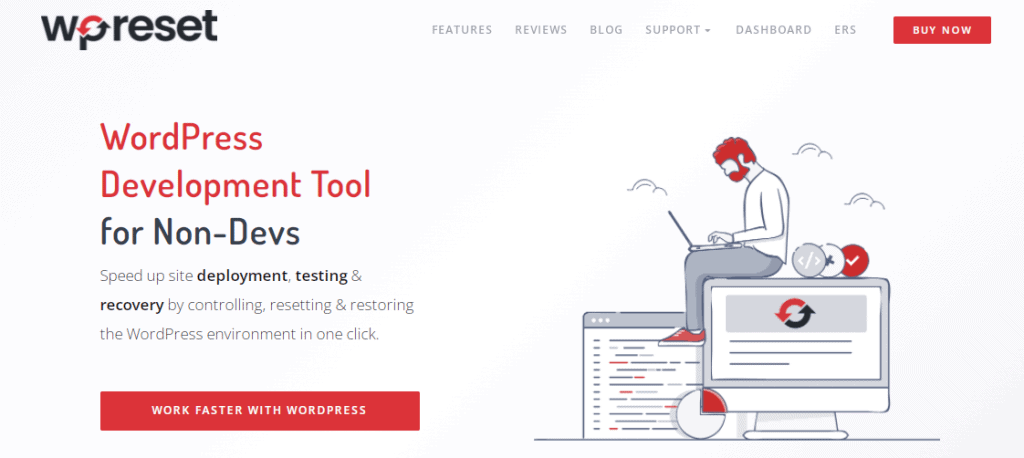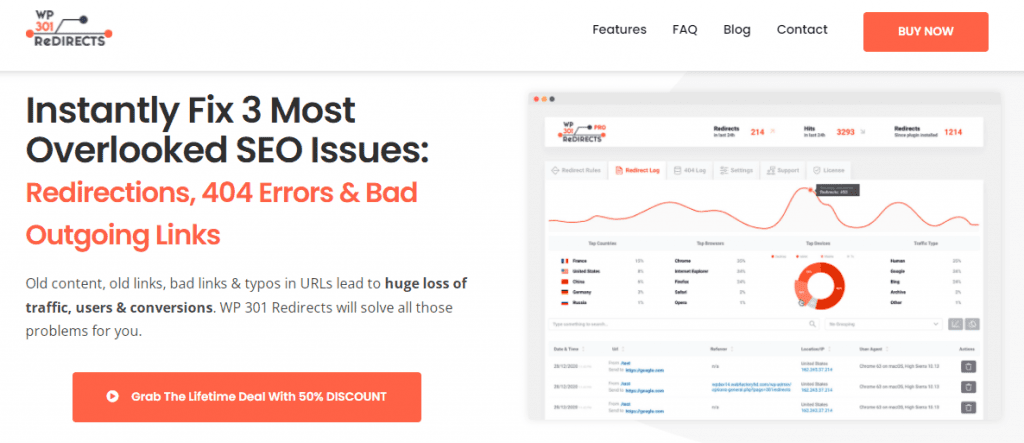While it may seem completely harmless at first glance or perhaps not so important, you will still see for yourself that the speed of your WordPress site is a significant factor.
Namely, followers get more interested depending on how fast your page loads. It has probably happened to you a couple of times that you want to access the page, but after a few moments of waiting for the page to open and load, you lost patience and were already looking for a new page that would open in a short period.
SEO ranking, site user experience, conversion rates, homepage visit rates, and many other factors are all affected by site speed. Each of these factors is critical to you as the site owner. You want to gain more visitors, get good user feedback, and have your site recommended.
However, this won't be easy if users wait long for the page to open. We know that WordPress pages contain several details and advantages that can be complicated to understand.
For that reason, we wrote an article as a form of help or an indication of what you should do to speed up your site. While we won't cover everything, we will try to highlight the most essential points.
Fast WordPress Hosting

Many point to this item as one of the essentials for improving your performance speed. So, the right choice will mean a fast site, so let's start with the fact that if the hosting is slow, there is a good chance that there will be a site too.
We recommend that you look over all of the solutions and options that WordPress offers. Choose the best one for you based on your needs, prices, and preferences, especially those in the form of hosting.
Note that the location of the server is also important. The ideal situation is to choose a host that offers a server located in the exact location as your primary target audience.
Page Caching
Another item that will give results is the use of page caching. This is often related to the situation when you use cheap hosting. So let us explain to you what is going on behind the scenes and why this item is needed.
When someone visits your WordPress site, the server frequently compiles each page from scratch. Therefore, this means executing PHP to “build” the page and examine your site's database to get the page's content. Your server delivers the finished HTML to the visitor's browser when all this is done.
This process contributes to the fact that individual visits last longer and consume more resources per visit. Page caching stores the completed page in cache memory. That way, on a new visit, the cache uses the HTML product of the page without doing the mentioned job.
Content Delivery Network (CDN)

To define the benefits of speeding up your site, we will first explain the process of the work itself. A CDN or content delivery network works on the principle of accelerating the global load time of your site by storing your static content on a huge network of “marginal” servers around the world.
The content is downloaded from the nearest fringe location when visitors visit your site rather than your primary server. As a result of the shorter physical distance, the files are downloaded faster, and your site loads more quickly.
Many managed WordPress hosts also offer built-in CDN services at no extra cost. With all of the above, we think that you need to get into this and test whether this item will bring you benefits.
Optimize Your Images, JavaScript, CSS
Optimize as many items as you can. We'll start with the pictures. There are two ways to optimize images: resized dimensions and compression. Both methods have proven to be highly successful. Also, lazy loading can be considered as one of the solutions.
In addition to images, optimize CSS in the following best and most common ways. The first is based on reducing CSS code to reduce the file size by eliminating spaces and extra characters. Another way is to combine separate CSS files to reduce HTTP requests.
In this section of optimization, we will also discuss JavaScript optimization. To avoid problems and minimize and combine your JavaScript as much as possible, we recommend excluding specific JavaScript files from the combination, similar to CSS.
In addition, it would be a great idea to delay loading JavaScript as much as possible, thus avoiding blocking content from loading above the break.
Use Fast Plugins
Plugins and their features are something that your site can't do without. However, when used, they can further slow down your site. You must choose which plugins you want and which ones you choose for those that will speed up your site. We single out the following plugins: WP Reset, WP 301 Redirects, WP Force SSL.
WP Reset
 In an effort to make everything work perfectly and flawlessly, mistakes occur, garbage is collected, or the site simply crashes and stops working. In this situation, the WP Reset plugin comes into play. With great pleasure, we present it to you through this article and highlight its essential characteristics, genuinely commendable.
In an effort to make everything work perfectly and flawlessly, mistakes occur, garbage is collected, or the site simply crashes and stops working. In this situation, the WP Reset plugin comes into play. With great pleasure, we present it to you through this article and highlight its essential characteristics, genuinely commendable.
Whether you have a situation where you need to reset a site that went wrong due to a bad plugin, still had a failed update, or is just too messy to handle, WP Reset will do the job for you. You can install and use the WP Reset plugin to do a simple media library cleanup or a complete reset.
Configure the page to be what you need after a reset, or create a collection of themes and plugins. In addition to this, let us single out some of its essential characteristics, namely: Whitelabel option, automatic snapshots, centralized management, etc.
This plugin comes in free and paid versions.
WP 301 Redirects
It must have happened to you countless times that when you try to access a particular page, you get a “404 error” as a notification that you cannot access the page at the moment. To help you handle this situation more efficiently, we present the WP 301 Redirects plugin, which removes 404 pages and broken links.
The goal of developing this plugin is to provide visitors with relevant content even if the page does not exist on your blog.
In addition to this essential feature, WP 301 Redirects provides features such as:
- ignoring bad traffic or blocking bad bots,
- charts through which you can track absolutely all actions through detailed views and statistics within the dashboard,
- a large community of users who use this plugin and from who you can get help, etc.
This plugin also comes in free and paid versions, and according to your needs, decide which will be the best choice for you.
WP Force SSL
The third plugin we present to you is WP Force SSL. Indeed, the true solver of all SSL problems is this plugin. So, let's start with its exceptional characteristics. It will give you real-time monitoring for your SSL certificate and page, so you'll be notified if something doesn't work or if your certificate expires soon.
In addition, it is essential to mention the possibility of redirecting HTTP content to HTTPS, checking certificates, and ensuring that security headers work.
Still, we can say that this plugin is known for its content scanner, which works on the principle of checking every resource on every page on your site to find and remove mixed content errors, the biggest enemy and the main destroyer of SEO rank.
Another topic we'll cover today is the centralized dashboard. You can get all of your sites and licenses from it, or you can completely rebrand the add-on without changing any code.
So, whether you want to protect yourself from potential hacking attacks, boost your Google ranking, or use the plugin to solve all SSL problems with improved SEO and user experience. In that case, we are confident that you will find everything you need in the free or paid version.
Optimize Your Database and Comments

When visiting your WordPress site, the server needs to query the database to get all the required information to display the page. Long story short, the more complex and complicated your database is, the longer the query will take, which will compromise your website's performance and also waste your server's resources.
A good practice would be to clean up your site's database regularly.
Given the importance of this section, we only recommend the lazy load the native WordPress comments section option. On the other hand, we suggest optimizing the comments. If your site has a reasonably busy comment section, this can reduce the speed of your site.
Limit or Disable Revisions
By default, WordPress stores unlimited revisions each time you click the Save Draft button while working on a piece of content. Therefore, if not wholly disabling, we recommend limiting subsequent revisions.
Conclusion
We have tried to simplify it through this article and give you a few items and plugins that will speed up your page. We are sure that you will not miss the results and be satisfied with what you have achieved.






